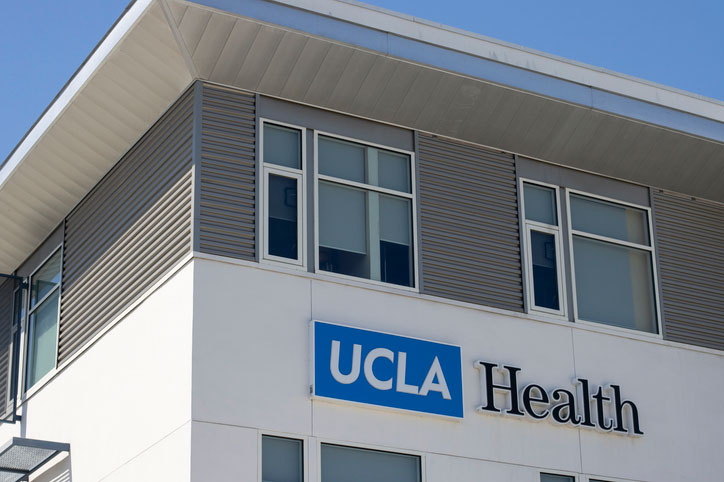Created by DNPcaliforniaEDU contributing writer

Though higher-level degrees mean that nurses are able to command higher salaries and senior-level positions, the idea of becoming a Doctor of Nursing Practice (DNP) comes with a financial burden that can be daunting.
Fortunately, there are numerous scholarships and grants available specifically for DNP students that can alleviate some of these costs.
As the demand for highly qualified nursing professionals remains high, various organizations, institutions, and government bodies offer financial aid to support the next generation of nurse leaders.
In this 2024 edition, we explore the latest scholarships and grants available to DNP students. From national programs to specialized funds targeting underrepresented groups and veterans, this guide aims to provide a comprehensive overview of the financial resources that can help aspiring DNPs achieve their academic and professional goals without the added stress of overwhelming student debt.
Funding Your DNP Degree
Funding your DNP degree can seem complex and overwhelming, but don’t forget that there are many different programs out there to help make education more accessible for ambitious students and aspiring nursing professionals.
One of the first steps is to research and apply for scholarships and grants specifically designed for nursing students pursuing advanced degrees.
Many professional nursing organizations, healthcare institutions, and philanthropic foundations offer financial aid tailored to DNP candidates. These funds are often awarded based on academic merit, financial need, or a commitment to serve in underserved communities, making it crucial to find opportunities that align with your personal and professional goals.

In addition to scholarships and grants, explore the federal and state financial aid programs that you may be eligible for. Federal options like the Nurse Corps Loan Repayment Program (LRP) and Public Service Loan Forgiveness (PSLF) can significantly reduce the financial burden by offering loan repayment assistance in exchange for service in high-need areas.
State-level programs also provide support, often in the form of grants or tuition reimbursement for those who commit to working in their home state after graduation.
Another vital aspect of funding your DNP degree is employer support. Many healthcare organizations recognize the value of having DNP-prepared nurses on their staff and offer tuition reimbursement or sponsorship programs to encourage advanced education. If you are currently employed in the healthcare sector, check with your employer’s human resources department to see if such benefits are available. These programs can be a win-win, as they provide financial assistance while ensuring that you bring back advanced skills and knowledge to your workplace.
State Funding Opportunities for Aspiring DNPs in California
If you’re pursuing a DNP degree in California, you’ll be pleased to know that the state offers several funding opportunities to help you achieve your goals. California is deeply invested in developing highly trained healthcare professionals, and as a DNP student, you have access to various grants, scholarships, and loan repayment programs designed to ease the financial burden of advanced nursing education. These opportunities not only help reduce your costs but also encourage you to contribute to the healthcare needs of the community.
Here are some key state funding opportunities available to nursing students in California:
- Song-Brown Program: This program offers grants to schools that train primary care providers, with a focus on serving underserved populations in California. While this program does not offer funding specifically for DNPs, they do offer funding for a variety of other nursing roles, including becoming a registered nurse (RN), a midwife, or a family nurse practitioner/physician assistant (FNP/PA), or finding a primary care residency.
- Advanced Practice Healthcare Scholarship Program: Administered by the Health Professions Education Foundation (HPEF), this scholarship is specifically for California students in nurse practitioner, nurse midwifery, and other advanced practice nursing programs. While this program does not offer funding for DNP programs, it does offer support for nurses hoping to pursue education in fields like pharmacy, physical therapy, dentistry, and counseling. It also helps nurses pursue certification programs in specialties like midwifery and anesthesia.
- California State Loan Repayment Program (SLRP): For DNP students who go on to work in Health Professional Shortage Areas (HPSAs), this program offers loan repayment assistance, helping you pay off your student debt faster while making a meaningful impact in high-need communities.
Each of these programs has specific eligibility requirements and obligations, so be sure to explore them thoroughly to see which ones align best with your career plans. It’s wonderful to know that California is actively supporting future nursing leaders like you, helping to ensure that financial constraints don’t stand in the way of your educational and professional aspirations.
BSN to DNP Programs in California
As you might have noticed, some of the state funding opportunities in California may preclude aspiring DNPs from accessing state funding for higher education. Instead, aspiring DNPs may be interested in using the existing funding to pursue lower-level nursing degrees, and then apply into shorter-term, streamlined nursing programs specifically tailored to professionals with an existing level of education.
For example, a number of schools in California offer BSN to DNP programs: that means that their DNP programs are shorter (and cheaper) and allow you to earn your DNP and master’s simultaneously. Some California-based schools with BSN to DNP programs include:
- California State University, Long Beach
- University of California, San Francisco
- Azusa Pacific University
Education Funding Resources for Veterans
Veterans who are pursuing higher education have access to a wide range of funding resources that can significantly reduce the financial burden of tuition and other related expenses.
One of the most well-known and comprehensive programs is the Post-9/11 GI Bill, which covers up to 100% of tuition and fees at public institutions for eligible veterans, as well as providing a housing allowance and money for books and supplies. The GI Bill can also be used at private institutions, though there is a cap on the amount it will cover.
For those attending more expensive schools, the Yellow Ribbon Program is available, in which participating institutions agree to match the VA’s contributions to cover the remaining costs, ensuring veterans can attend the school of their choice without financial limitations.
In addition to federal programs like the GI Bill, veterans can also explore state-specific benefits that may offer additional financial support. For example, California provides the California College Fee Waiver Program for dependents of veterans, which waives tuition and fees at California State Universities, the University of California, and California Community Colleges for the children and spouses of service-connected disabled veterans. While this program is designed for dependents, many states have similar programs that directly benefit veterans as well. These state programs often work in tandem with federal benefits, offering veterans additional financial support and ensuring that their education is fully funded.
Beyond federal and state programs, many private organizations and institutions offer scholarships exclusively for veterans. Scholarships like the Pat Tillman Foundation Scholarship and the American Legion Legacy Scholarship provide financial assistance based on merit, need, and service. These scholarships are often designed to honor veterans’ service and sacrifice, providing them with the resources they need to pursue higher education. By combining these resources, veterans can significantly reduce the out-of-pocket costs of their education, allowing them to focus on their studies and transition smoothly into civilian careers.
Finally, the Blinded Veterans Association offers educational funding of between $1,000 and $2,000 to the child or spouse of a veteran who is legally blind.
Deadlines for the Upcoming Academic Year
This might sound obvious, but one of the keys to successfully accessing funding for education is by staying on top of relevant deadlines. To be completely sure that you have the correct information for the funding opportunities of your choice, verifying this information with the responsible institution or organization is recommended.
National Level Deadlines
- FAFSA (Free Application for Federal Student Aid): The federal FAFSA deadline for the 2024-2025 academic year is June 30, 2025. However, many states and colleges have earlier deadlines, so it's crucial to check and submit your application as soon as possible.
- Pell Grant and Federal Direct Loan Deadlines: For most federal financial aid, including Pell Grants and Direct Loans, the deadline aligns with the FAFSA deadline of June 30, 2025. It's important to submit your FAFSA early, as some funding is distributed on a first-come, first-served basis.
- SAT and ACT Scholarship Programs: For high school seniors, many national scholarship programs tied to SAT and ACT scores have deadlines in the fall. For instance, the Coca-Cola Scholars Program typically has a deadline in October 2024, and the **Gates Scholarship** usually closes applications by September 2024.
California-Specific Deadlines
- Cal Grant Deadline: The application deadline for California's Cal Grant program, which provides financial aid to low- and middle-income students attending colleges in California, is likely to be in March 2025. Ensure your FAFSA or California Dream Act Application is submitted by this date, along with a verified GPA submission.
- California College Promise Grant: This grant covers tuition costs for eligible California Community College students. While there's no specific application deadline, it's recommended to apply as early as possible for each semester to secure funding.
- Middle-Class Scholarship (MCS): The MCS deadline aligns with the Cal Grant deadline, which will likely be in March 2025. This scholarship assists students from middle-income families who do not qualify for the Cal Grant program.
Education Funding Opportunities for Minorities

In the United States, there are a number of organizations that provide scholarships, fellowships, and loans to marginalized groups with the aim of increasing diversity, equity, and inclusion in the nursing field and in nursing education.
Some relevant grants and opportunities for minorities specifically pursuing degrees in nursing include:
- American Association of University Women (AAUW): Provides fellowships of between $8,000 and $50,000 to women of color pursuing degrees in medicine, law, and business administration.
- American Indian Science and Engineering Society: Offers scholarships to indigenous students pursuing any degree in STEM
- Association on American Indian Affairs Scholarship: Accessible for Native American students with a GPA of 2.5 or higher who will commit to serving their tribes after graduation.
- A.T. Anderson Memorial Scholarship Program: Scholarships of between $1,000 and $2,000 for Native American tribal members with GPAs of 3.0 or above.
- Chinese American Nurses Association: Provides $2,000 in funding to students with Chinese heritage who are pursuing any degree in higher education, ranging from undergraduate to doctoral degrees.
- Hebrew Free Loan Association: Jewish students in the greater Bay Area may qualify for loans of up to $1,500.
- Hispanic Scholarship Fund: Scholarships ranging from $500 to $5,000 for Hispanic students with a minimum GPA of 2.5.
- Indian Health Service Health Professions Scholarship: Applicants must have a GPA of at least 2.0 to apply for this opportunity, and must also commit to two years of work in providing healthcare within Native American communities after graduation.
- National Association of Hispanic Nurses (NAHN) and National Hispanic Health Foundation (NHHF): Different organizations that provide scholarships to Hispanic nursing students. 21 NHHF scholarships are available to students pursuing graduate degrees in podiatry, dental, medical, pharmacy, public health school students, medical, health policy, and physician assistance.
Funding Opportunities Focused on Underserved Communities
Health Care Access and Information (HCAI) offers scholarships of up to $25,000 to cover one year of an educational program in nursing. This substantial financial assistance is part of the state’s commitment to addressing the critical shortage of healthcare professionals in underserved communities across California. By supporting nursing students financially, HCAI aims to ensure that these future nurses can focus on their studies without the burden of overwhelming educational debt.
To qualify for this scholarship, aspiring nurses must commit to practicing in a medically underserved area of California upon graduation. These areas often face significant challenges, including limited access to healthcare services, higher rates of chronic diseases, and lower overall health outcomes. By choosing to work in these regions, scholarship recipients play a crucial role in improving healthcare access and quality for some of the state’s most vulnerable populations.
The commitment to serve in a medically underserved area is not just a requirement but an opportunity for nursing graduates to make a meaningful impact. In return for their service, these nurses gain valuable experience in diverse and often challenging healthcare environments, which can significantly enhance their professional skills and career prospects. Moreover, by working in these high-need areas, they become part of a larger effort to reduce health disparities and promote equity in healthcare access throughout California.
